Five reasons ‘Couples privilege’ doesn’t exist
This article was written in 2017, so it is possible my perspective has shifted since then however the crux of my argument regarding the use of the term remains.
I’ve seen this concept floating around for a long time and I’ve always not really agreed with it or liked it, but it’s taken me awhile to sit down and explain my problem with this concept, why I think it’s inaccurate and what else should be used to describe some of what people usually use ‘couple privilege’ to describe.
Reason 1: Privilege is about systemic oppression
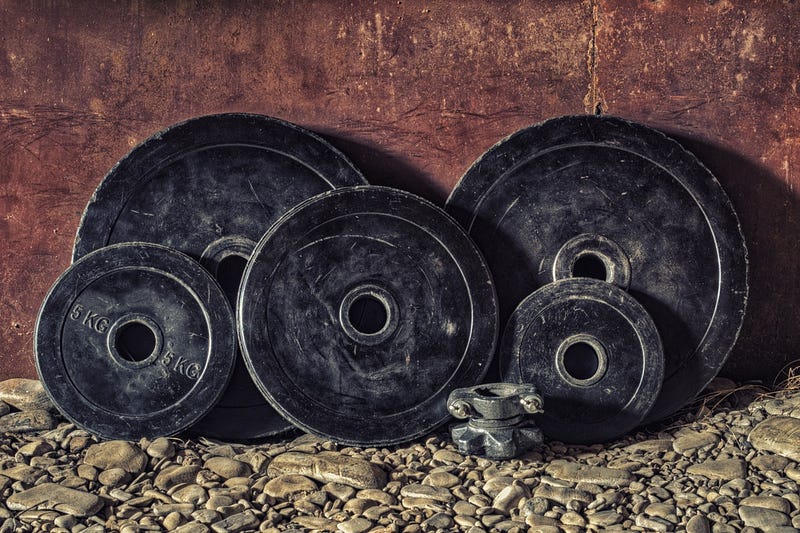
When most people reference couple’s privilege, they’re referencing a blog by Franklin Veaux which has been transferred to the More Than Two website. It gives a cursory explanation of privilege as “any advantage that one person or group has over another that hasn’t been specifically earned” which is not necessarily inaccurate.
The intentional nature of privilege
However, this is overly simplistic and doesn’t really explain who is giving this privilege and why — and this is kind of an extremely crucial part of privilege. While the vast majority of people have some privilege that they don’t know that they have, which the article does discuss, it’s usually based on systems which were created to intentionally bestow a privilege on one type of person and disenfranchise another.
In the example of Peggy McIntosh’s Invisible Knapsack of White Privilege, ‘whiteness’ as a category isn’t merely just an ‘advantage’ someone just so happens to have over another. ‘Whiteness’ was created as a means of defining white people as better than others, dating back to Carl Linneaus and scientific racism. Race as a category was invented by white people, for white people purely for the purposes of defining white people as a superior type of people. And the history of race has meant a homogenising of people of colour’s identities into one space of skin colour in ways that have meant the destruction of cultures. It wasn’t as if white people woke up one day and were white and had all of these privileges on accident. The system was made on purpose. And it continues to be propped up on purpose. This hasn’t been set and left there to give white people privilege. The system is continuously maintained.
Likewise, if we think about gender and privilege, the categories of binary gender and what it means to be a ‘woman’ and a ‘man’ were also created and reinforced, usually by men, for the intents and purposes of keeping women in their place. If you look at the ideas of what is inherent in women, ages ago women were seen as hypersexual nymphs who couldn’t hold leadership positions for that reason — whereas now ‘men’ are the hypersexual ones — but that, not coincidentally, doesn’t stop them from being leaders. Gender identities as a thing that people experience have always existed, just as ethnic identities have. But when someone comes along, draws boundaries in order to define someone as lesser, that’s intentional.
The personal vs. the structural
And it’s important to recognise privilege as a structural thing because then we dispel the idea that just because you haven’t been personally mean to any individual of any certain marginalisation, doesn’t mean you don’t reinforce systemic oppression. But the problem with ‘couple’s privilege’ is it takes what are personal interactions and conflates them with structural oppression.
When you get personally insulted by someone, there may be an element of structural oppression behind it. Women and people read as women are largely the ones targeted by catcalling and sexual harassment. Black and Latinx people (usually men) are targeted by the police in both the US and the UK despite being statistically less likely to possess drugs or guns. Systems of systemic oppression have a huge impact in our personal lives.
However, any incidence of someone being an asshole to you isn’t an example of systemic oppression. If someone calls me a honky or mayo breath, this is not an example of systemic oppression against white people. The best analogy I’ve heard about is the difference between if you said “You’re fired!” to your boss vs. if they said it to you.
A lot of the items the article describes as “internal privileges” are about individuals behaving in a way that doesn’t prioritise a third person which… is a very jerk thing to do, but isn’t necessarily structurally backed up within wider society. I’ll go into this more when I discuss the idea that none of this is inherent to a couple structure, but fundamentally how someone treats you individually isn’t necessarily a reflection of a systemic privilege.
Intersectional awareness and the problem with ‘privilege’
Kimblerle Crenshaw was the first to introduce the idea of ‘intersectional feminism’ which meant looking at systemic oppression in a more dynamic and nuanced way. When we say that women are oppressed in society, we need to think about the way that other systemic oppressions impact it because it fundamentally changes the experiences of people under this marginalisation. While white women in first wave feminism were complaining that they had no right to work outside of their homes, POC and poor women did not experience this disparity.
And when we look at the way misogyny manifests against women, many different intersections can directly impact it. You can say that women are stereotyped as being ultra feminine and delicate and sensitive — but this is not a stereotype afforded to Black women who experience being masculinised. This goes back to Sojourner Truth’s ‘Ain’t I A Woman’. Black women experience misogyny very differently. Latinx women experience a hypersexuality and a ‘spicy’ stereotype while Asian women experience the ‘dragon lady’/schoolgirl stereotype.
Trans women face the tediousness of having to prove their femininity, but Black trans women will experience specific racialised misogyny. While women are supposed to be sexual in very specific ways, disabled, fat and older women are consistently desexualised, infantilised and face their own issues. And I don’t even know enough about what intersex women would face to speak intelligently about it.
The problem with the word ‘privilege’ and how it gets used has already been covered by Andrea Smith, but to summarise, instead of having a deeper discussion about how privileges and marginalisations intersect, often the conversation ends up in people arguing about how oppressed they are, specifically with white people using other oppression they face to pretend they don’t face white privilege. And that’s especially unhelpful because different privileges and marginalisations rely on visibility, geographical location and a myriad of other factors.
Simplifying privilege is not possible because it’s a complicated subject. And ‘couple privilege’ is definitely one case where the lens is very simplistic, not very intersectional, and is one of those examples where using ‘privilege’ is more about claiming oppression than it is about addressing structural inequity.
Reason 2: Only heterosexuals need apply
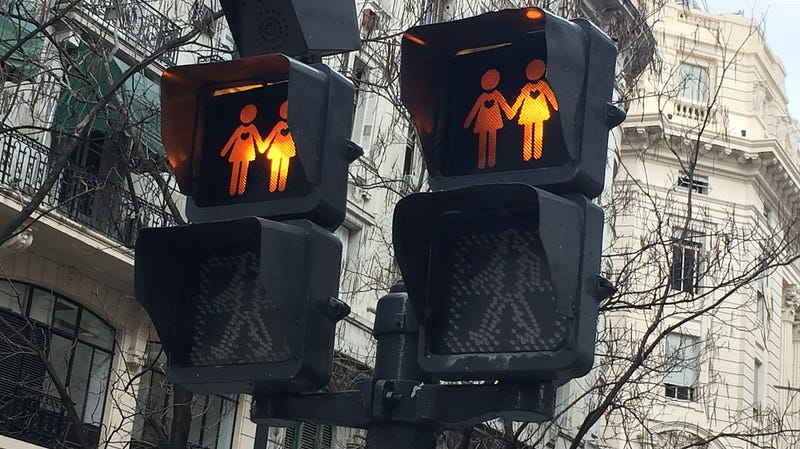
The thing that immediately struck me about so many of the ‘external privileges’ described by the Couple Privilege article was that many of them were really only applicable to heterosexual couples. This is something that’s immediately obvious to me not only because I am bisexual/queer but also because I grew up with a lesbian mother and so many of these things were not things that my mother could do. Or they were things my mother could do which polyamorous people assume they can’t do.
It’s worth noting that I grew up with a white lesbian mother in the US South. My mother’s whiteness makes a lot of things possible for her that would be very different if she weren’t. And us being in the South made things much different than when we lived in California. Things have also improved somewhat in the US with regards to a few of these things. But to demonstrate how many of these ‘privileges’ wouldn’t have been possible for my mother when she was in a couple, I’ll list them below.
- Checking into a hotel — My mother and her partner could not rent a hotel room with a double bed without serious risk. They would likely have pretended to be friends and got a twin bed, just to be safe.
- Greeting cards — Very few greeting cards, even today, are not heterocentric. As a non-binary person, I also notice most greeting cards are unnecessarily gendered, especially if they are romantic.
- Workplace socialising — My mother once brought her partner to a company function and her boss called her a dyke.
- Apartment rentals — While I’m not sure whether or not my mother told people we rented apartments to that she was a lesbian in the South or in California, I’m fairly certain many LGB people have had to hide their partner status or been forced to rent apartments with two bedrooms when they only need one to avoid being discriminated against.
- CPS issues — My experience with the CPS really depends on the local organisation you get. I’ve seen family members allowing their children to live in rotting garbage have nothing happen to them (and they were single, not coupled) whereas I was nearly removed from my father’s house when he left us home alone for weeks on end.
- Promiscuity — When I told people my mother was gay at school, and that’s when I finally felt safe doing that, they assumed my mother made out with women in front of me. As a bisexual person, I’m assumed to be excessively promiscuous, regardless of whether I am polyamorous or monogamous.
- Custody disputes — My father threatened my mother repeatedly with court action to take me away on the grounds she was a lesbian. We were afraid because this had actual legal precedent.
- Background checks — My mother was once fired from a job after someone who worked with her spotted her rainbow sticker on her car. The temp agency said she tested positive for PCP and refused to give her any other jobs. There is a long history of not only being gay being a crime, but it being a public humiliation that prevented you from getting any form of license, even a beauticians.
- Military — My mother’s partner was in the closet while being in the military.
- Marriage — My mother could not get married to her partner, but could get married off to her babysitter when she was 16 and married my father because a name change was $300 and a marriage was $30. ‘Domestic partnerships’ she could get later were not federal marriage and didn’t guarantee all her rights. She’s not getting any tax refund for all those years she was with her partner and had to file as single.
- Religion — It seems this was one where they knew they had to specify heterosexuality but many, many religions didn’t tolerate my mother due to her being a lesbian, let alone host a wedding. Many churches also don’t approve of interracial or interfaith related unions.
- Fostering — The chances of my mother being able to foster or adopt as a lesbian were laughable. But also, being poor made it an impossibility even if they did accept that and she was in a monogamous coupling.
- Medical visitation — Same sex couples or even anyone read as a same sex couple wouldn’t be allowed visitation. And I’d say honestly a same sex monogamous couple is more likely to run into more problems with this now than a guy with two girlfriends.
- Cultural ideas — Homosexuality has a history of being linked to psychopathy and pedophilia in a direct and measurable way. I have watched Congresspeople compare my mother to a child molester on the television when I was young. I’ve yet to remotely hear of paedophilia being linked to polyamory specifically or historically. Many of these cultural ideas are also very true for bisexuals as we’re always seen as being on the prowl, not able to commit, always being up for sex, etc.
- Picking up children — My mother’s partner could pick me up from school. All schools ask for is a list of trusted adults, especially in poorer areas where the ‘nuclear family’ is not the norm due to economic need or cultural practice. Many people live with grandmas, aunts, and uncles who need to be able to pick children up for school. Maybe this isn’t a ‘norm’ in middle class white neighborhoods, but it’s fairly common to have people other than your parents pick you up.
- Vacations — We didn’t go on many family events or vacations either due to my mother being seen with her partner and being attacked or just barely being able to afford food, let alone vacations.
- Credit to monogamy — My mother being a lesbian, despite the number of partners or monogamy practice, was always used as an example of why being lesbian/gay is ‘unstable’. The idea that being bisexual in particular is ‘unstable’ is very prevalent in society, as aforementioned.
All of these examples of couple privilege are not possible for many queer/LGBTQ couples. I’m pretty sure there are things I’m missing out of here that have to do with intersections of race that aren’t thought about. But so many of these are so glaringly obvious that this seems like a list of heterosexual privileges — not couple privileges.
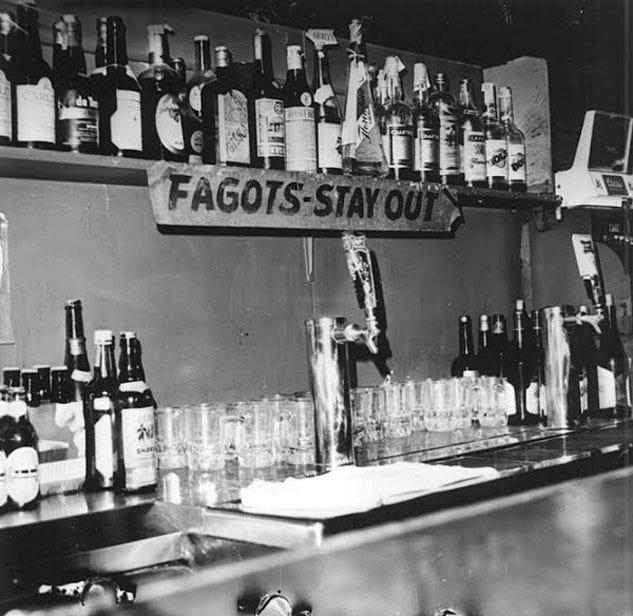
While many of this can depend on your location, what I find a lot is that there is an anxiety that (usually white and middle class) polyamorous people experience about certain functions of their lives where they assume their polyamory will be an obstacle, without acknowledging what other intersections of their identity will make these obstacles unlikely or in fact aren’t obstacles at all (such as in the case of picking children up from school). But I’ll get more into what I call ‘Cocktail Party Crisis’ later.
One big caveat about my analysis here is that I’m also coming at this from a white perspective. There may be a lot of these ‘couple privileges’ which also don’t apply to BAME/POC couples. I’m thinking of a story as recent as in 2011 where a Kentucky church refused to even allow the presence of interracial couples in their church services (except for funerals). There may be many other problems with this list I don’t see because I’m white.
Love and marriage in history
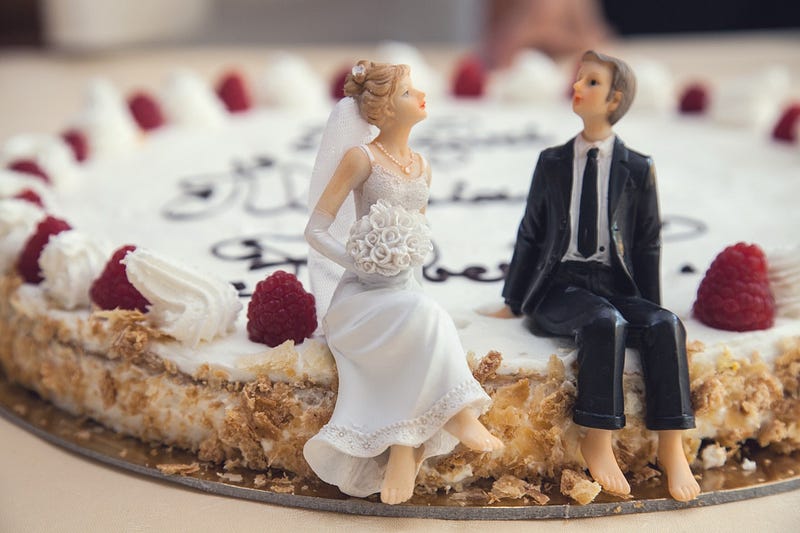
Privilege is meant to be about social oppression and specifically about systems created with the purpose of exploiting people and giving other people power. Are heterosexual couples seen as the ‘norm’ in society today? Absolutely. But the construction of the ‘couple’ was not done for the purposes of subjugating polyamorous people — especially since the construction of the ‘couple’ has never historically stopped men specifically from having sex or relationships outside of their married partner.
If we look at love and marriage in history, marriage began as an institution that had absolutely nothing to do with romance and love. It was about the exchange of property: specifically the exchange of a woman for her ‘dowry’. Marriages were made to create political bonds and even today, people can enter into arranged marriages that aren’t necessarily about love or romance but are about security. This isn’t inherently a bad thing.
Two people agree to partner for the benefit and security of another. Different areas will have different marriage customs, but the most common purpose of marriage was for the man to secure his legitimate heir. And as Sex at Dawn (a book a lot of polyamorous people like), notes, a shift from a nomadic society to an agricultural society meant men wanting to secure their property to pass to their heir and not to anyone else and meant a hoarding of resources.
Marriage was not about love and it doesn’t have to be. Many people get married even today because of the legal benefits, but that isn’t always a ‘privilege’ for them. Being forced to enter into a legal bonding with someone in order to secure things like health insurance puts individuals in precarious places. The idea that marriage should be reflective of romance or love is a fairly new one. And if we look even further back into history, the idea that romantic love is a valid feeling worth pursuing is also new.
In fact, love was seen by ancient philosophers as a mental illness. I’ve never been a fan of evolutionary psychology because I think it’s always ignored the way our modern cultural attitudes affect how we interpret our past selves, but if you think about this from a purely survival standpoint, love is not evolutionarily wise. It makes more sense to make partnerships based off of who will give you the most chances of survival, not whether or not they make your knees wobble.
Why is this relevant? Because fundamentally marriage and the creation of the couple has been about the exchange and security of property. And because of that, men have always had the freedom to explore other sexual and romantic interests outside of that couple, especially if they were wealthy. Adultery may be a crime, but historically, adultery has been about the threat that it posed to the construction of the family, i.e. the solidification of the exchange of property, which is why the Ancient Greeks thought it was worse than rape.
If you think about the context of that threat, the woman, being seen as the guardian of the family and the bearer of the children, had much more to lose and much less ability to fight back against adultery — a practice which continues on today. If you think about the disparities in how female celebrities such as Kristen Stewart are treated when they cheat to punishments in other cultures against women who commit adultery the issue is less of the idea that a third partner is always evil and more on the idea of who owns what.
The couple wasn’t constructed in society for the purposes of subjugating people in throuples, or multiple relationships. It was a part of misogyny that ensured the exchange of property. That is why so many of these don’t apply to queer/LGBT couples and why queer/LGBT couples who are in long term monogamous partnerships are used as examples of why LGBT people should have these rights and to establish their legitimacy.
Reason 3: Not just for couples
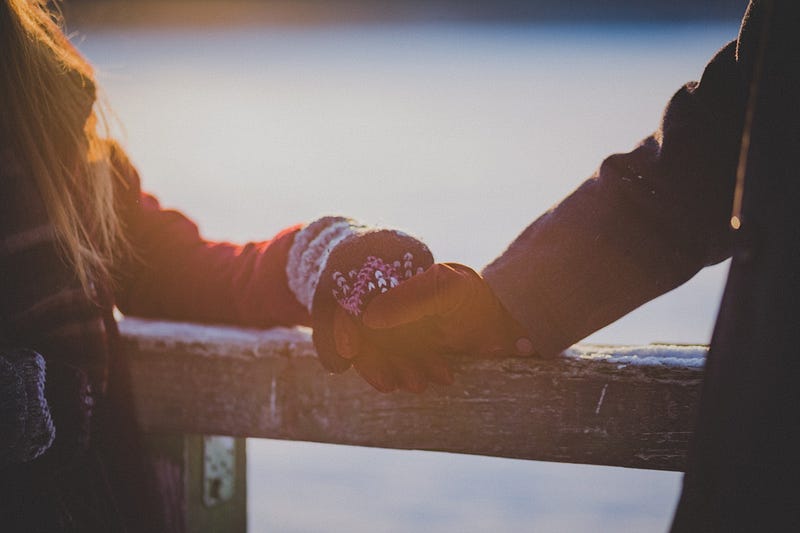
The other issue I have with the way couple privilege is defined is that so many of the ‘internal privileges’ described are not behaviours exclusive to couples and can happen outside of those structures.
Prioritising isn't always about value
There are lots of reasons why we might prioritise some relationships over others. We do this in everyday life. Someone that we’ve been friends with for 5 years might feel closer to us than someone who we’ve just met. If a member of our family is ill, we might cancel a date with a friend to take care of them. There’s a number of reasons we prioritise different relationships at different times. It’s not always done with the intention of valuing something less.
Sometimes this can be sinister. Anecdotally, I have heard for BAME/POC polyamorous people that they feel like racism has a direct impact in how they’re valued or prioritised by partners, regardless of couples status. Despite polyamory supposedly being welcome and able for anyone to practice, many polyamorous people end up being excluded by the community which is, to me, not much different from prioritising a couple over an individual — and actually has structural oppression behind it.
The problem with polyamory is sometimes that there’s a lack of overall studies of the community and the exclusion problem above creates an even greater issue. When I was active in the polyamory ‘community’ I could count the number of POC/BAME polyamorous people I knew on one hand. When I stepped away from the community, for reasons I outline in “Why I don’t identify as poly”, I actually have met more POC/BAME people who are polyamorous than not. The surveys and research that may get passed around only get so far as communities reach.
But I can say at least, in the time I’ve run both Non-Monogamy Help and have participated in online polyamory communities, prioritising one partner over the other has been something I’ve seen people do outside of a couple framework. Do I think people trying out polyamory start out making some of these assumptions without thinking about it? Absolutely.
However, generally speaking a lot of the people who start out making these assumptions and prioritising their relationship over other relationships outside of the couple do so out of fear and a general ignorance/rose tinted glasses over what polyamory is going to mean for them. It doesn’t mean it’s not shitty behaviour. It’s just not limited to newbie couples.
Priorities, time and disability
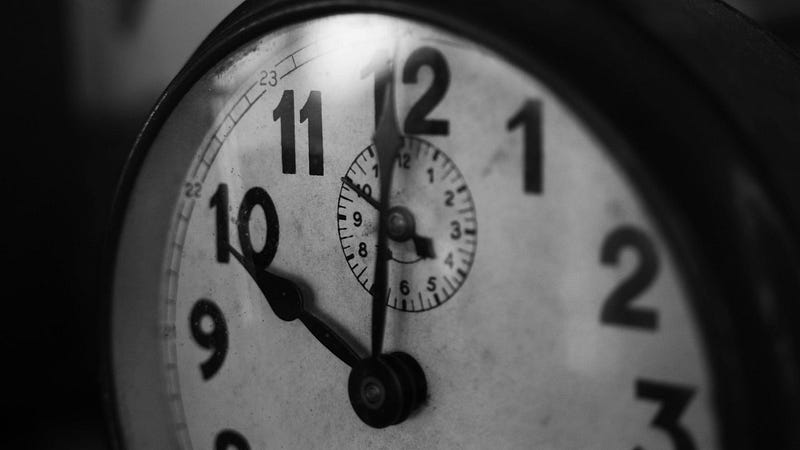
Much of what underlies the idea of Couple Privilege is the idea that two people choosing to prioritise their relationship over other relationships is inherently oppressive. But, as I said before, we prioritise all types of relationships in our life depending on circumstances. In fact, one of the problems monogamy can often bring is the assumption that a romantic relationship is inherently more important than friendships and there’s an ongoing cultural script about what it’s like to be the third wheel when your friend enters a romantic relationship and stops spending time with you.
Many people (hopefully) would not question the idea that, when you bring a child into the world or adopt one, that child should become your number one focus in your life. While the amount of self sacrifice expected of individuals definitely is gendered, many people would not blink to think that prioritising your child among all other relationships isn’t bad. And it doesn’t mean that “Child Privilege” exists.
We also prioritise our time in different ways, which has a lot to do with our relationships. Someone who has a time intensive career such as being a doctor or a lawyer will have to prioritise their career over their relationships in many ways. Having that priority isn’t inherently a problem — but it becomes a problem when you don’t acknowledge it and use it as an excuse to be negligent of partners or children. There is nothing wrong with setting priorities in your life of how you are going to spend your time.
As a disabled person, I have to set those priorities. You may have heard of the spoon theory and its applications for people with different types of disabilities. Being a person with a thyroid disorder and someone who experiences sensory processing problems, spoons are definitely something I relate to. I have to consider where and how I spend my time because, if I don’t, I could end up either exhausted and sleeping for 12 hours or crying in a corner from a meltdown.
So many articles about chronic illness beg people to not give up on individuals with chronic illness because they cancel plans, have to change things around. And this is often an issue for people with social anxiety, which I also struggle with from time to time. It’s a pure and simple fact for me that people I already know take up less spoons to meet and speak with than going to new events with brand new people. And dates? Ne’er was there a more spoon draining activity for me. I have had to turn down dates with people because they refused to meet me in spaces that would not be a sensory overload.
Behaviours are the problem, not hierarchies

Being disabled has a direct impact on how I decide to do relationships, especially given that I also have a disability which has the high likelihood of rendering me blind eventually. I have thought about how I want to go through life, if I want to live on my own (because solo polyamory has appealed to me) and which ways I want to live. I also have to think about my own mental health concerns, if I have the capability to provide emotional support for multiple people, if I have the physical energy to devote to travel… all of these considerations have been part and parcel of why I have chosen to have a domestic/primary partner.
But having that doesn’t mean that I do not value other relationships or other people inherently. But it does mean I will prioritise my time accordingly. Having been in the position of a secondary who’s been ejected like a defective warp core to save the mother ship, I know that it doesn’t feel good. And from my experience, the problem for me was the lack of communication. I had assumed my position was equal, when it wasn’t. If I had been told from the start where this person’s priorities lay, I may have not invested so much. Any new partnerships I make, I will ensure that the person understands what my energy levels are and where I invest them due to having so little.
Despite having a hierarchy, I do not have ‘veto’ power over my domestic partner’s relationships. Nor does it mean that any of the items outlined in ‘internal privileges’ are necessarily true about my relationships. While this may be how individuals within couples have a tendency to react, it doesn’t mean that having a hierarchical structure is the actual problem. Especially when prioritising one relationship over the other can happen outside of a couple or a structured hierarchy. Deciding to toss out all hierarchical structures or judge them as the problem is throwing the baby out with the bathwater.
At the end of the day, if one communicates to potential partners that this is how you operate and that’s not something that a new partner wants to be a part of, that’s fine and that’s really the best choice of how to go about things. However you decide to structure things is up to you and your life. But it is naive to assume that not having any hierarchies won’t result in your partners prioritising another relationship over yours.
The impact of wealth
Many polyamory communities are dominated by white, wealthy/middle class polyamorous people, but there are other communities outside. I do think that, to a certain extent, practicing polyamory in terms of having the expendable time for multiple dates and relationships is easier for individuals with a certain amount of class privilege, which I briefly covered in “Why I don’t identify as poly”. However, there are communities of poor and working class polyamorous people who may experience ‘couple privilege’ differently.
Many of the cases of ‘privilege’ described in the article have to do with the impact of class privilege and wealth. Two people operating as a unit or a couple will usually have a significant advantage economically over an individual who is operating on their own. In speaking with some individuals who practice solo polyamory (where they don’t have any type of domestic/live-in partner), they experience couples who operate with a ‘unicorn hunter’ agenda as having far more wealth than any individual partner.
But as a variety of people practice polyamory, including working class and poor people, there may be many circumstances where the couple do not have much wealth and unilaterally applying ‘couple privilege’ to them, especially with regards to actions that would be more likely to be committed by a wealthy couple, doesn’t acknowledge how wealth is another huge intersection which is being ignored.
Reason 4: Visibility vs. erasure
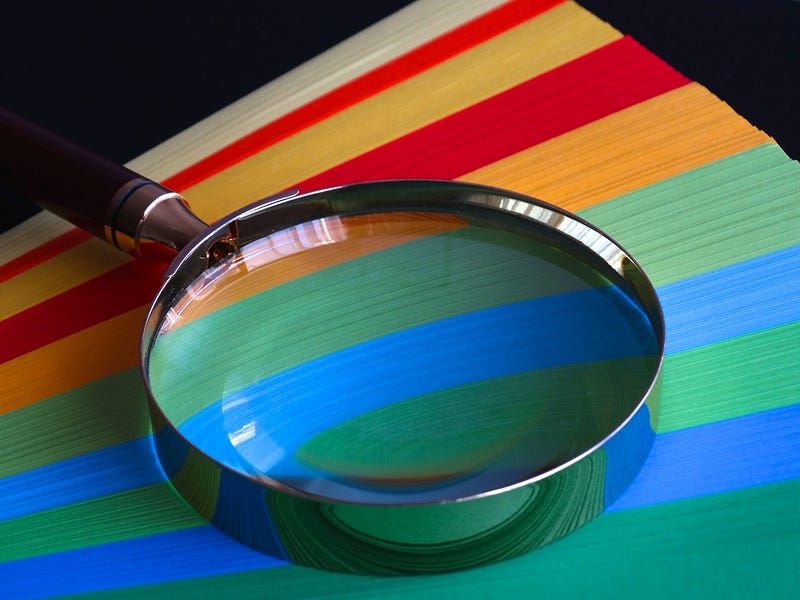
There are many privileges that the article describes that are institutionalised. You can only get married to one other person. Legalities of contracts, house ownership, other types of issues are fraught with complications when marriage doesn’t simplify the matter. But the problem with this simplistic definition, and this is a problem you find in a lot of narratives about privilege, is the lack of understanding between the oppressive effects of visibility vs. erasure.
Privileges where there are none
There are a lot of parallels in this discussion with discussions I have had in the trans and non-binary communities about ‘Binarism’. I am a non-binary person, specifically agender, and am also trans. There is a lot of discussion in the non-binary community about ‘invisibility’ with the assumption that non-binary people are ‘invisible’. But “non-binary” covers a range of identities, some of which include gender non-conforming people who are definitely ‘visible’ and attacked.
Some non-binary people will argue that their non-binary identity blocks them from getting access to transgender healthcare and thus the concept of ‘Binarism’ or the idea that binary identified gendered people have a ‘privilege’ over non-binary people, was born.
On the whole, just looking at the concept and not thinking about intersections, it might make sense to you. But in practice and in looking at how systems of oppression actually work, it is incredibly dependent upon several factors. Yes, non-binary people are denied healthcare because non-binary identities are either not considered valid or people don’t know enough about them to consider them valid. I’ve experienced this directly when trying to get surgery. Yes, non-binary people face issues solely binary identified people don’t, such as a struggle with getting people to accept the validity of gender neutral pronouns.
But, this does not inherently mean that binary identified trans people have a ‘privilege’ over non-binary people. And when we look at it with an intersectional lens and we look at who is at the most risk in the trans community as a whole, it’s transgender women of colour. Not to mention, the common narrative of ‘non-binary invisibility’ not only erases the fact that transfeminine and gender non-conforming individuals are very visible, but also that non-binary identities were largely rendered invisible by white colonisers to create a system that even white non-binary people like me overwhelmingly benefit from. The best breakdown of this is written by b. binaohan in ‘decolonizing trans/gender 101’.
While I once used the concept of ‘binarism’, when I realised that it was inherently flawed because it ignored the intersections of power and assumed a ‘privilege’ that was extremely dependent upon gender, race, wealth and other social characteristics, I stopped using it. The base assumption many white people like me make is that visibility is acceptance and that erasure is equal to targeted discrimination. Fundamentally, the system of oppression created that impacted me in ways I used ‘binarism’ to describe were not designed with the intent to impact me specifically, and that matters.
Visibility as acceptance
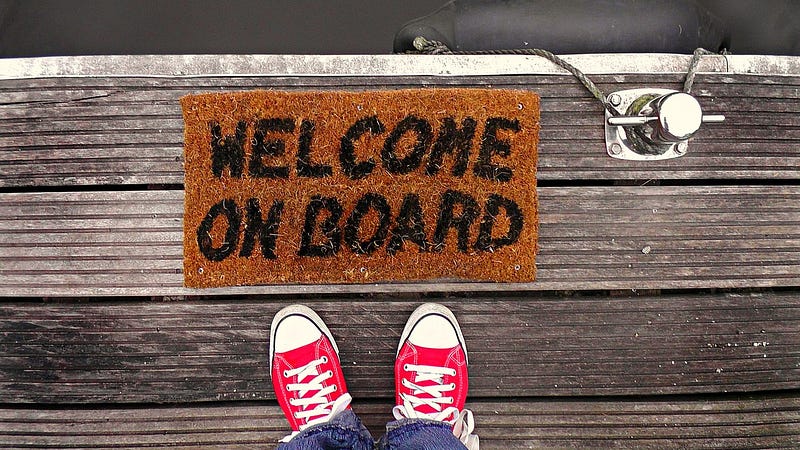
White people have the privilege of being visible in whiteness without that in and of itself being a threat. Because of that we assume that visibility is part and parcel of acceptance. And yes, being able to be you to the fullest in every aspect of your life is very freeing. Not having to hide parts of yourself feels freeing when you feel like you do have to hide. But just because you are visible, doesn’t mean you are accepted. And for people in many ways, being visible puts you at risk.
It’s not a surprise to me that one of the only non-binary people to be attacked in a hate crime was Sasha Fleischman, an agender person whose skirt was lit on fire while they were asleep on a bus . And it doesn’t surprise me that people tend to be the most vicious toward me online about being trans when they assume I am a trans woman. Which is not to say they don’t mock being non-binary, but “tr*nny” is a specific word launched at specific people.
This is because of visibility. I am agender, but no one looks at me and knows that. I am read as a woman and I rarely dress ‘masculine’. I am not gender non-conforming now but I certainly was growing up and I got lots of bullying for it. It’s an experience that has put me at an odd end of the non-binary community in some ways, because I don’t have a desire to look ‘genderless’ because when I did look ‘genderless’, the visibility meant hatred and attack for me — not acceptance.
There are structural obstacles against me for being non-binary. I have been denied treatment due to it and in many cases, I have no ability to choose a gender neutral title or not include a gender in forms. Many non-binary people feel erased because they are not visible or included in functions of the state. And while their feelings are valid, to me there is a very big difference between the impact of erasure and the impact of visibility when that visibility means targeted discrimination. Sasha and I are both agender, but I doubt I would be attacked in such a way and if I was, it would be for being read as a woman, not for being seen as someone who is not conforming to gender standards and therefore must be attacked.
Being visible in society also means targeted discrimination. It means that not only are you not included in the structures of society, but you are purposefully excluded. The reason that transgender women of colour are killed and attacked and targeted in vast contrast to the rest of us is because of not only their visibility as people of colour but also because trans women have been identified in society as a population to be purposefully attacked and excluded. If you think about jokes and hatred towards trans people, media stereotypes and more, almost all of them are made about trans women. It’s not to say trans men are never attacked, but it’s to say that when society identifies you as a visible entity and targets you, it has a direct effect on your life.
In my case, a lot of people don’t know non-binary is even a thing. And while that presents its own problems, there is a huge difference to me between when you are visible and targeted to when you are erased.
Cocktail Party Crisis
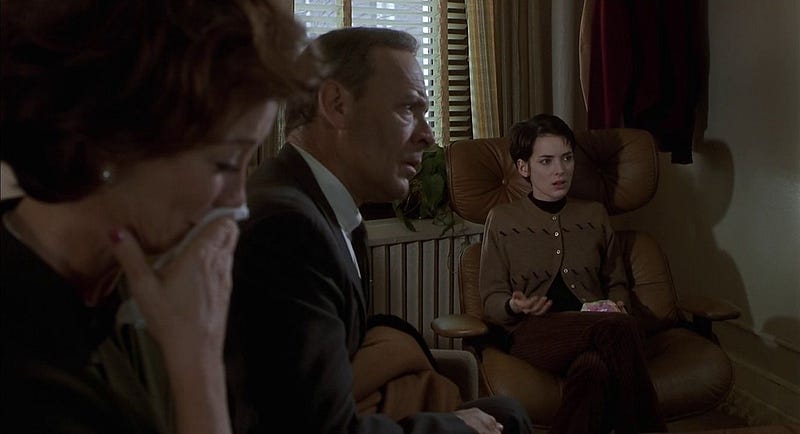
For a lot of white, wealthy polyamorous people, being polyamorous is their first experience where visibility might risk them a loss of something. Things that they would normally have unfettered access to now become a source of anxiety. There isn’t much of a distinction or an understanding of how intersections will impact the discrimination they experience. In many cases, they assume that the erasure they experience as a polyamorous person is equal to being targeted when that is not always the case.
Polyamory is a relatively new word for a practice that isn’t necessarily new. But we have lived in a society which has endorsed heterosexual monogamy for a long time. It definitely challenges norms. Slowly, polyamory is working it’s way into a wider cultural contexts, now becoming something people are cognisant of. The reactions, depending on where you are, can be mixed, but polyamory is becoming known as a ‘modern’ and even forward thinking thing. Contrast this directly to ‘homosexuality’ which was once defined as a mental illness and has never been seen as ‘edgy’, except when companies have been able to use their support of homosexuality as proof of their ‘open mindedness’.
James Baldwin once said this regarding white gay people in 1984:
“I think white gay people feel cheated because they were born, in principle, in a society in which they were supposed to be safe. The anomaly of their sexuality puts them in danger, unexpectedly. Their reaction seems to me in direct proportion to their sense of feeling cheated of the advantages which accrue to white people in a white society. There’s an element, it has always seemed to me, of bewilderment and complaint. Now that may sound very harsh, but the gay world as such is no more prepared to accept black people than anywhere else in society.”
In other words, white gay people were not angry that they were mistreated for being gay, but rather that their gay-ness prevented them from accruing the privileges that were awarded to them by virtue of being white. And in many cases, what I call the “Cocktail Party Crisis” is when white polyamorous people are feeling oppressed because their relationship style gets in the way of the privileges they expect to have because of their whiteness.
This Crisis doesn’t take into account intersectional identities and how they play into who will be on the receiving end of blame when polyamory does become a reason for why someone is discriminated against. In many of the examples I’ve been given of polyamory discrimination, the vast majority have happened against women or individuals read as women, not because there is an understanding or visibility of polyamory and a desire to target it, but instead an idea that women sleeping with more than one person are bad, a.k.a. misogyny. Sometimes these happen in areas that are more rural, which also has an impact on how women and relationships are viewed overall.
You might say, “But why does it matter? They were still attacked for being polyamorous.” Because the nature of the institution matters. Because this is the same thought process that leads people to assume that women have a privilege in family courts because they supposedly automatically get custody of the children in every divorce agreement. Aside from the fact that it is a myth that women are automatically granted custody, being awarded children purely on the assumption that being a woman makes you ‘better with kids’ is not a privilege. There are many cases where oppressive stereotypes seem like “benefits” when they aren’t.
Why targeting is important
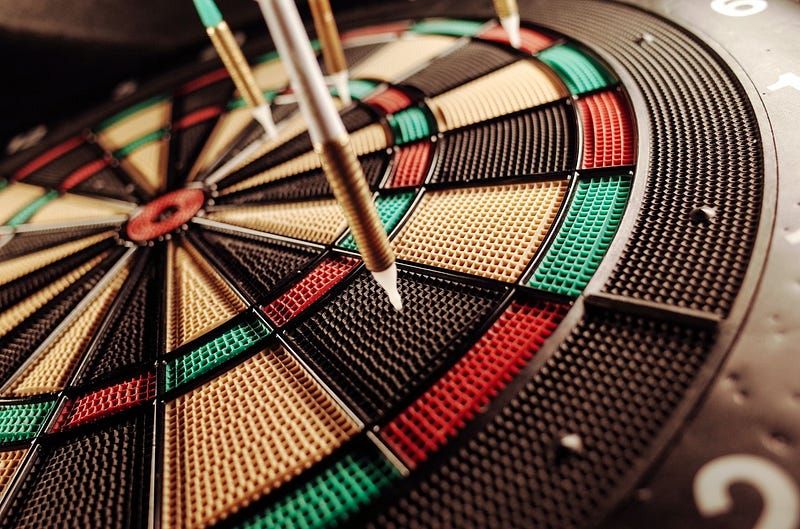
It’s not to say that no one has ever been threatened with losing custody, or other legal consequences for being polyamorous and that these situations don’t happen. But it’s to say that, because polyamory is ‘erased’ or not known within a cultural context, it is likely that those who do experience consequences for polyamory are going to be ones who are more visible or who are experiencing any other current structural oppression.
When I say that trans women of colour experience the most violence in the trans community, it is not to say that white trans men never get any violence — it’s to say that there are people who are targeted and visible and those are the people who will structurally receive the most impact of bigotry, whether the individuals killing trans people understand the word ‘transgender’ or not. So those practicing polyamory who are most visible (women, POC/BAME, poor, queer/LGBT, etc.) are more likely to experience consequences for being polyamorous than not.
I can’t in good conscience pretend that someone like CeCe McDonald has ‘privilege’ over me because she is binary identified when I know for a fact I don’t face the same violence she faced due to my ‘invisibility’. And likewise, I can’t ignore the fact that some of these ‘privileges’ for couples are only accessible to me in situations where I can be read as being in a ‘straight’ couple than in scenarios where I’m not.
The feelings behind the Cocktail Party Crisis that many white, wealthy polyamorous people experience are valid just as the anger at mistreatment white gay people experience is valid. However, it’s important to put this within an intersectional context. My white lesbian mother did face structural oppression for being a lesbian that may have been lessened due to her whiteness, but the structure created to intentionally rob her existed. The difference in ‘couple privilege’ is that the system wasn’t designed for the intention of disenfranchising polyamorous people specifically. And that matters.
Reason 5: “Monocentrism” works better
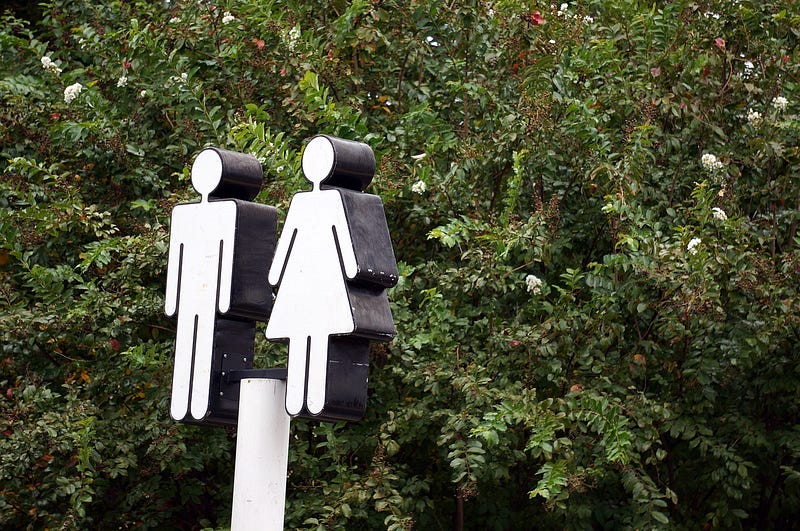
You can’t look at the media we consume and the society we face and not see that the heterosexual couple is the ‘norm’ identified in this society and the expectation people have. Just as I can’t look at the media I consume and the society I face and not see that a binary concept of gender is an expectation people have, despite biology teachers explaining the complex nature of sex, despite scientists confirming the existence of intersex people, and despite well known scientists updating their assumptions on gender.
Instead of ‘binarism’, I’ve adopted describing this phenomena as ‘ciscentrism’. I didn’t even get into a discussion about intersex people and how the concept of ‘binarism’ assumes that intersex people who identify as only women or men have a different experience or even that a person can identify as both non-binary and a woman (if they are bigender for example), but the point is trying to identify a major source of bias in how society sees something without catagorising it in an incorrect way. I see ciscentrism as a product of misogyny as a whole.
Privilege refers to systems intentionally created in order to oppress people that we now at times unintentionally (and sometimes intentionally) reinforce. Misogyny as an oppressive system was created to control women — and in order to do that the concept of ‘woman’ had to be defined. Over time this has changed. Ancient Greeks used to define a vagina as an inverted penis and believed women were a sort of off-shoot of the original ‘male’ species. Regardless of how we’ve defined ‘woman’ over time, it has always been with the intention of creating a structure where men have more power.
And in order to do that, those who fall outside of the gender spectrum must be purposefully erased from history or murdered (such as in colonial invasions). Ciscentrism is the symptom of the disease of misogyny. It’s the byproduct of what happens when you have a society that attempts to define a binary system of gender in order to reinforce a system of oppression. And in that vein, monocentrism (a term which I didn’t make up myself) is a byproduct of a society that uses the unit of the ‘couple’ to reinforce a system of oppression.
Monocentrism also has the benefit of speaking about cultural trends rather than interpersonal interactions, which are a different aspect that isn’t covered in the definition of ‘privilege’. McIntosh’s Knapsack doesn’t delve into interpersonal relationships, even though white privilege can have a direct impact on that. When it comes to how individuals treat each other, we have to look at that always within the context of overall oppression, which relies on visibility and targeted discrimination.
While I understand, given the constant cultural monotony of heterosexual monogamy being endorsed and re-endorsed, being polyamorous feels very “other”, especially in rural areas, it’s still important to re-examine things from a wider perspective. When I lived in the US South, being agnostic wasn’t something I admitted to being. At work, I was asked only, “What church do you go to?”. They didn’t even recognise the concept of me not being Christian.
Oppression against anyone who isn’t a Christian in many US Southern states is very real. But being a white person who could be assumed Christian and not, for example, a Sikh, Muslim or even a Jewish person wearing a Star of David if I so choose, gave me a lot more leeway. And now that I’m in London and I’m a pagan, I would say that being agnostic or atheist is more common and expected. While England may officially have the Church of England as the official church, what’s on paper isn’t the same as what’s in practice — and that’s important to remember.
But what about those unicorn hunters?
Much of what the Couple Privilege article contains about tendencies people have as couples exploring polyamory is accurate and the advice it gives to people on how to be aware of how they might be prioritising their relationship over newer ones is an important thing. A lot of people make these pitfalls. They assume things about their relationship, they get other people involved, they don’t communicate their assumptions, and they end up hurting people.
Unicorn hunters are very common and it’s a practice that needs to be addressed and countered, without a doubt. But just because people have a tendency to behave like a jerk or just because you may lack access to certain things doesn’t mean there is a system of oppression that has been targeted and created to oppress you. And we can address the way society prioritises monogamy while being intersectional and being real about what structural oppression means.
